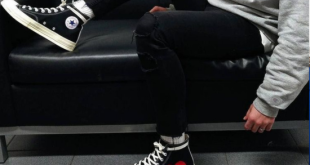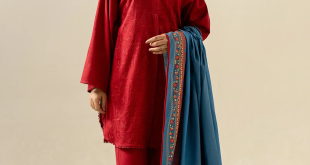Fashion reporting is undergoing a revolutionary transformation, blending technology, sustainability, and inclusivity into a modernized industry. As we look toward the future, it’s evident that progress and innovation are shaping how the fashion world is presented and perceived. This article dives deep into the evolving landscape of fashion reporting, highlighting the trends, tools, and cultural shifts that are redefining the industry.
The Rise of Digital Fashion Reporting
The shift from traditional print media to digital platforms has democratized fashion reporting. Visit now https://www.sp5derhoodieshop.net/ Websites, blogs, and social media have become the primary sources for style inspiration, news, and commentary. Digital reporting allows real-time updates, ensuring audiences are instantly informed about runway shows, designer launches, and fashion trends.
Social Media: The New Frontline
Platforms like Instagram, TikTok, and Pinterest are now essential for fashion reporting. Influencers and creators act as mini-reporters, curating content for their followers. This shift has blurred the lines between journalism and personal branding.
Key Benefits of Social Media in Fashion Reporting:
- Instant updates on global fashion events.
- Accessibility to a broader audience.
- Opportunities for interactive content, such as polls and live streams.
Technology Driving Fashion Journalism
Artificial Intelligence (AI) in Reporting
AI-powered tools are revolutionizing how fashion stories are written and analyzed. Algorithms can predict trends, analyze consumer behavior, and even generate articles based on runway data. AI enables faster, more accurate reporting tailored to audience preferences.
Applications of AI in Fashion Reporting:
- Identifying emerging trends from social media hashtags.
- Automated content creation using natural language processing.
- Enhanced audience targeting for personalized content delivery.
Augmented and Virtual Reality (AR/VR)
AR and VR are becoming staples in fashions journalism. Virtual fashions shows and immersive editorial features offer readers an interactive experience. These technologies make fashions more engaging and accessible, regardless of geographical barriers.
Sustainability as a Central Narrative
Reporting on Ethical Fashions
The future of fashions reporting is heavily tied to sustainability. Consumers demand transparency, and reporters play a crucial role in holding brands accountable. Investigative pieces on eco-friendly materials, fair labor practices, and circular fashion systems are gaining traction.
Highlighting Circular Fashions
Circular fashions, which focuses on recycling and upcycling, is becoming a focal point for journalists. Reports on brands that adopt sustainable practices inspire consumers to make conscious choices.
Inclusivity and Representation in Fashions Journalism
Fashions reporting is no longer confined to a singular perspective. Check it now https://spiderofficial.us/ Voices from different cultures, genders, and backgrounds are being amplified, reflecting the industry’s global and diverse nature.
Examples of Inclusivity in Fashion Reporting:
- Spotlighting designers from underrepresented communities.
- Promoting body positivity and adaptive fashion.
- Celebrating gender-neutral and non-binary collections.
Challenges and Opportunities
While inclusivity is celebrated, challenges remain. Reporters must navigate cultural sensitivities and ensure balanced storytelling. However, these efforts foster a richer and more authentic dialogue in the fashion space.
The Role of Data in Fashions Journalism
Data-Driven Storytelling
The integration of data analytics in fashion reporting is providing fresh insights. From analyzing consumer trends to measuring the success of fashion shows, data is becoming an invaluable resource for journalists.
Advantages of Data in Reporting:
- Precision in trend prediction.
- Enhanced credibility through factual reporting.
- Visualization tools like infographics to engage readers.
Real-Time Analytics
Tools like Google Trends and social listening platforms empower reporters to stay ahead of the curve. Real-time analytics enable quick responses to breaking stories, ensuring timely and relevant content.
Future-Proofing Fashions Reporting
Embracing Innovation
To stay relevant, fashions journalists must continuously adapt to new technologies and methodologies. Experimenting with AI, AR, and multimedia content will be essential for future-proofing the industry.
Education and Skill Development
Aspiring reporters are now expected to have skills beyond writing, such as video editing, SEO knowledge, and data analysis. Journalism schools are adapting their curriculums to meet these demands, ensuring the next generation of fashion reporters is well-equipped.
Technology as a Game-Changer in Fashions Journalism
Technology continues to push the boundaries of how fashions stories are told and consumed. From virtual reality (VR) to augmented reality (AR), innovative tools are redefining audience engagement.
Virtual Fashion Shows and Events
Virtual fashions shows have become mainstream, especially in a post-pandemic world. Fashion reporters now cover these digital events, providing interactive content that includes 360-degree views, behind-the-scenes access, and live interviews.
The Impact of Metaverse Fashions
The rise of the metaverse is opening up a new realm for fashions journalism. Reporters are exploring virtual clothing, digital collections, and NFT-based fashion items, offering readers a glimpse into the future of style.
The Challenges Ahead
While the future of fashions reporting is promising, it is not without challenges. The oversaturation of content, the pressure to produce click-worthy headlines, and the struggle to maintain journalistic integrity in a fast-paced environment are all significant hurdles.
Combating Misinformation
Misinformation in the fashions industry can spread rapidly, especially on social media. Fashion reporters must rely on credible sources and fact-check rigorously to maintain trust with their readers.
Adapting to Algorithm Changes
With search engines and social media algorithms constantly evolving, fashion journalists must stay updated to ensure their content reaches the right audience. SEO optimization, keyword strategies, and analytics are now integral to success.
Opportunities for Aspiring Fashions Journalists
The evolving landscape of fashions reporting offers a wealth of opportunities for aspiring journalists. From niche blogs to major publications, there is a demand for writers who can combine creativity with analytical thinking.
Specializing in a Niche
Writers who focus on specific niches, such as sustainable fashions, tech-driven designs, or emerging designers, can establish themselves as authorities in their field.
Building Personal Brands
In the age of social media, personal branding is key. Aspiring fashion journalists should invest in building their online presence, leveraging platforms like LinkedIn, Instagram, and personal blogs to showcase their expertise.
Conclusion
The future of fashion reporting is undeniably bright, driven by technological advancements, a commitment to sustainability, and a celebration of diversity. As the industry evolves, so must its storytellers, embracing innovation while maintaining the essence of authentic journalism.
 Daily Blogger News Stay updated with the latest trends and insights. Your reliable source for daily updates and information.
Daily Blogger News Stay updated with the latest trends and insights. Your reliable source for daily updates and information.






